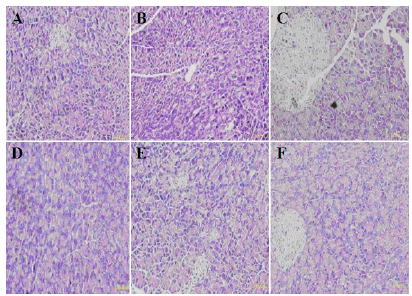ABSTRACT
PURPOSE:
To investigate the severity of pancreatitis in lipoprotein lipase (LPL)-deficient hypertriglyceridaemic (HTG) heterozygous mice and to establish an experimental animal model for HTG pancreatitis study.
METHODS:
LPL-deficient HTG heterozygous mice were rescued by somatic gene transfer and mated with wild-type mice. The plasma amylase, triglyceride, and pathologic changes in the pancreas of the LPL-deficient HTG heterozygous mice were compared with those of wild-type mice to assess the severity of pancreatitis. In addition, acute pancreatitis (AP) was induced by caerulein (50 µg/kg) for further assessment.
RESULTS:
The levels of plasma amylase and triglyceride were significantly higher in the LPL-deficient HTG heterozygous mice. According to the pancreatic histopathologic scores, the LPL-deficient HTG heterozygous mice showed more severe pathologic damage than the wild-type mice.
CONCLUSIONS:
Lipoprotein lipase deficient heterozygous mice developed severe caerulein-induced pancreatitis. In addition, their high triglyceride levels were stable. Therefore, LPL-deficient HTG heterozygous mice are a useful experimental model for studying HTG pancreatitis.
Key words:
Hypertriglyceridemia; Pancreatitis; Lipoprotein Lipase; Mice

